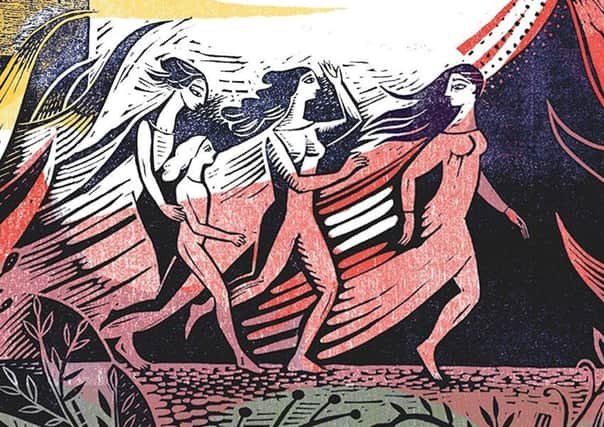Book review: The Silence of the Girls, by Pat Barker


The men are Agamemnon and Achilles and the girl is Briseis, a princess of Lyrnessus, a city allied to Troy, sacked by Achilles who takes her as his slave-concubine and trophy. Later she is seized by Agamemnon, whereupon Achilles sulks in what Homer calls his “wrath,” refuses to fight, and the Greeks come close to losing. So it is really a quarrel over property and status.
Well, that’s the heart of the story, here mostly recounted by Briseis herself, so that we get a feminine, if not feminist, perspective on the war. For Briseis “godlike Achilles... swift-footed Achilles” is Achilles the butcher, a killer who takes pleasure in killing his victims at Lyrnessus including her husband and brothers. Now she is his slave and must, like the other slave-women, keep silent, except when they are free to talk among themselves in the weaving-shed.
Advertisement
Hide AdOne of the beauties of Homer, as of Shakespeare, is that his work is open to many interpretations; that’s why it has endured for perhaps 3,000 years and why it continues to inspire writers, painters and filmmakers. There will never be an end to the tale of Troy or of the wanderings of Odysseus. Of course the war was fought over a woman – Helen, wife of Menelaus, king of Sparta, Helen who was seduced by the Trojan prince Paris and carried off to Troy. Alternatively it’s not about a woman at all, but only about property. Helen was property and Achilles quarrels with Agamemnon because Briseis is his property. Even Briseis is in two minds: “I’d become something more sinister: I was the girl who’d caused the quarrel. Oh yes, I’d caused it – in much the same way as, I suppose, a bone is responsible for a dog-fight.” In other words, not at all. Briseis is the occasion, or the excuse, for the quarrel, no more than that.
Though Briseis tells most of the story, there are scenes from which she is necessarily absent, some of which she is able to present as told to her subsequently; for others Barker sensibly employs a neutral third-person narrative. I don’t see how she could have avoided this without sacrificing credibility.
If Briseis moves, gradually and reluctantly, from hatred of Achilles towards a reluctant acceptance, it’s because of the friendship and influence of his friend from boyhood, Patroclus. His relationship with Achilles is a love affair, but not as we would understand a gay relationship today. They are soulmates rather than bedmates. Patroclus, as in most retellings of The Iliad, is a sympathetic character, one of the very few in the Greek camp not entirely subject to what we would now call his ego. Thanks to Patroclus, Briseis comes to understand something of this complexity of Achilles’ nature, a complexity seen, one has to say, in somewhat 20th or 21st century terms, as the result of his mother’s desertion of his father Peleus, leaving the little boy desolate. Even now he swims in the sea at night, calling out for the lost mother, a sea-goddess.
Likewise one can read the shift in Briseis’ feeling for Achilles, from hatred and revulsion to acceptance, even sympathy and understanding, respect and something not far short of love, as the common theme of a certain sort of romantic fiction from Charlotte Brontë to Georgette Heyer and even Jilly Cooper. But the development seems fair enough. Barker, writing the story of the wrath of Achilles from the point of view of a princess enslaved and serving as his concubine, had the choice of having Briseis find some means of taking revenge on Achilles, betraying or killing him (which we know from Homer she didn’t) or coming to some sort of love for him. She makes her treatment convincing by showing that the violent killer is also a mixed-up kid: Achilles as the James Dean of East of Eden. Happily, this doesn’t make for a happy ending. There are still horrors galore in the last scenes, when Troy has fallen and we are confronted with the fates of the Trojan women.
The Silence of the Girls, by Pat Barker, Hamish Hamilton, 324pp, £18.99